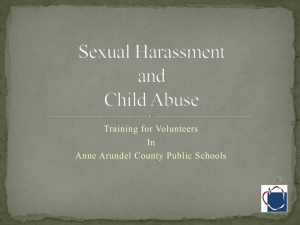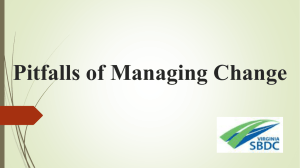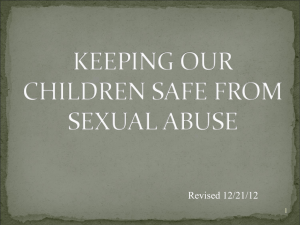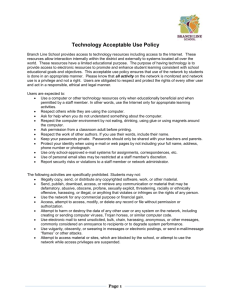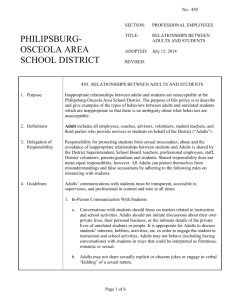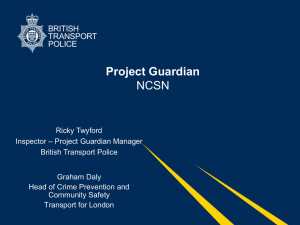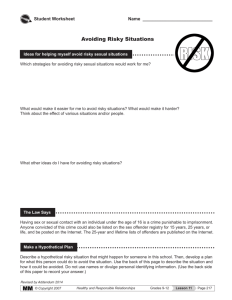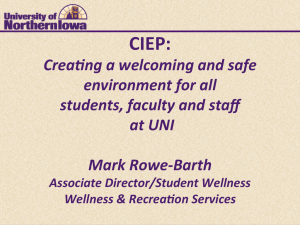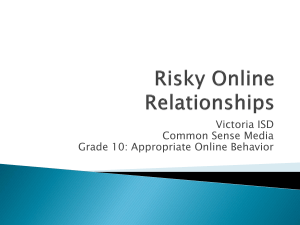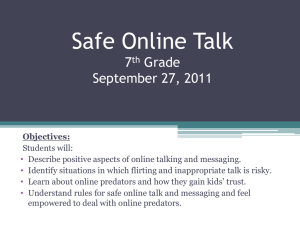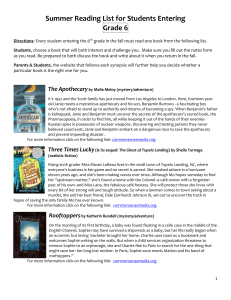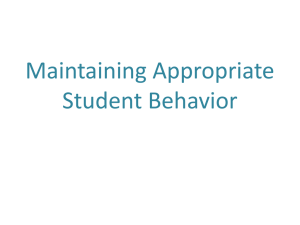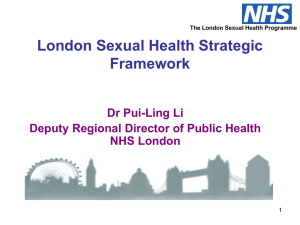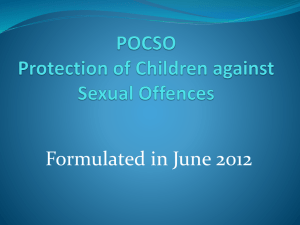File
advertisement
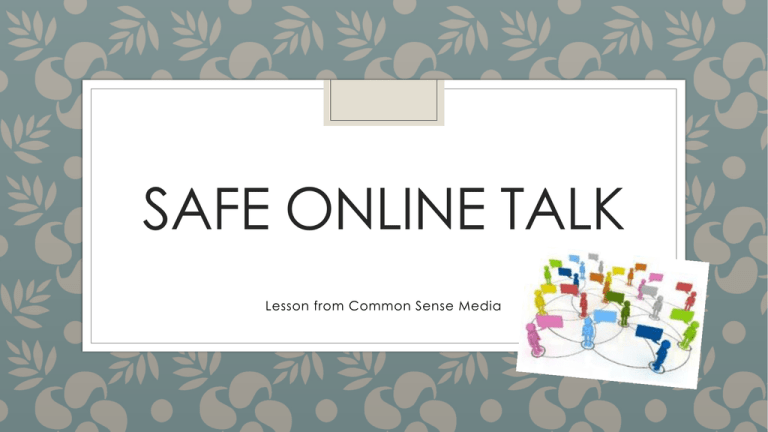
SAFE ONLINE TALK Lesson from Common Sense Media How many of you have ever heard? ◦Don’t talk to strangers? How might this rule change when we go online? While the Internet allows us to talk with friends we already know, it also allows us to communicate, collaborate, and share with people we don’t know and will never meet in person. While online communication is a wonderful opportunity . . . . . . it can also have pitfalls and some people – unfortunately - use the Internet inappropriately. pitfall – a danger or problem that is not obvious at first Let’s watch a video . . . ◦ Three different teens will share their experiences about connecting online. ◦ Pay close attention because when we finish watching, we’ll work together to see both the opportunities and pitfalls that each teen discusses. ◦ https://www.commonsensemedia.org/videos/perspectiveson-chatting-safely-online Which story do you feel most connected to? ◦Why? ◦What advice did the teenagers share? ◦Do you have anything to add? Pointers: ◦End any conversation that starts to make you feel uncomfortable. ◦Remember: You can shut off your device at any time! ◦People are far away – online. Don’t let them hurt your feelings! ◦Get help from an adult if needed. ◦AND - When you go online, follow all these rules! WHAT’S RISKY? from Common Sense Media What does it mean to be harassed? ◦harassment – to irritate or torment consistently; to wear our or exhaust How would you respond in person if ... . . . someone came up to you at school or on the street and said something rude or sexually inappropriate? How would you handle a stranger trying to flirt with you? Hey kitten! Mee-owww! These same kinds of things happen online . . . ◦Sometimes it’s obvious. ◦Sometimes it seems innocent enough - ?? Saying things they wouldn’t say to your face ◦When conversations are online, people are bolder. ◦Flirting or any kind of sexual references online is RISKY! Sometimes people online don’t really care about what’s best for you. ◦If anyone online says anything inappropriate – especially if they are older – STOP TALKING TO THEM RIGHT AWAY AND TELL AN ADULT! INTERNET TRAFFIC LIGHT from Common Sense Media If you develop a friendship or relationship online, ask yourself: ◦ Has this person asked me to keep anything secret? ◦ Has this person flirted with me or asked me anything sexual? ◦ Has this person asked me about anything private? ◦ Have I felt pressured by this person to do something? ◦ Do I feel untrue to myself – like I’m not sticking to what is right – when I talk to this person? If someone starts chatting about inappropriate things ◦ or asks you to send a picture . . . NEVER ◦ AND PLAN A FACE-TO-FACE MEETING WITHOUT TAKING A PARENT OR GUARDIAN. So let’s review . . . ◦Are there times when talking online can be an opportunity for something good? But what are some of the pitfalls (dangers/risks)? What about when you get that “gut feeling” that something is not right? ◦What should you do? And what are some of the rules for staying safe when talking or texting online? ◦ Don’t reply to questions that make you uncomfortable. ◦ Tell a trusted friend or adult if someone bothers you online. ◦ Avoid flirting or using sexual language online – ESPECIALLY WITH PEOPLE YOU DO NOT KNOW! ◦ NEVER, EVER, NEVER plan a face-to-face meeting with someone you met online without taking your parent or guardian. Teachers: ◦ More resources for this lesson can be found on Common Sense Media’s website: ◦ https://www.commonsensemedia.org/educators/lesson/safe-online-talk-6-8
